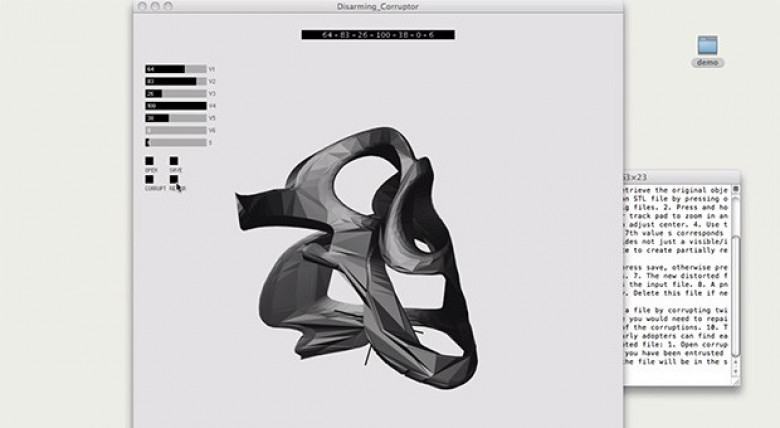3D-printing encryption program disguises blueprints for controversial objects
We've already seen, and in some cases theorized, the kind of legal issues 3D printing weapons and copyrighted content can create. For example, the 3D-printed gun dubbed the Liberator was downloaded more than 100,000 times in its file form before the US State Department yanked it from the internet last spring.
Matthew Plummer-Fernandez, a technologist for Goldsmith College's Interaction Research Studio at the University of London, was inspired to create a program that would allow people to distribute contentious files after a company refused to print his three-dimensional take on Mickey Mouse and Thingiverse decided to ban weapons files.
Dubbed Disarming Corruptor, the software encrypts .stl files bound for 3D printing in such a way that the items within no longer resemble their intended form. By running files through the app, folks will be able to distribute their designs under some amount of secrecy, and give recipients a code to restore the object to its original shape. At this stage, Disarming Corruptor only supports 101 possible keys, so its encryption offers only a veneer of protection at best.










































































